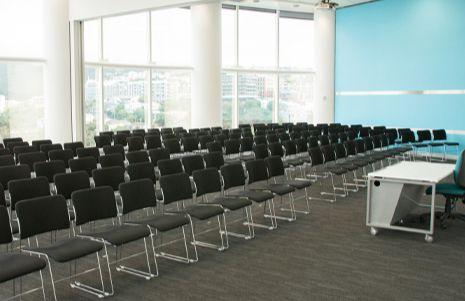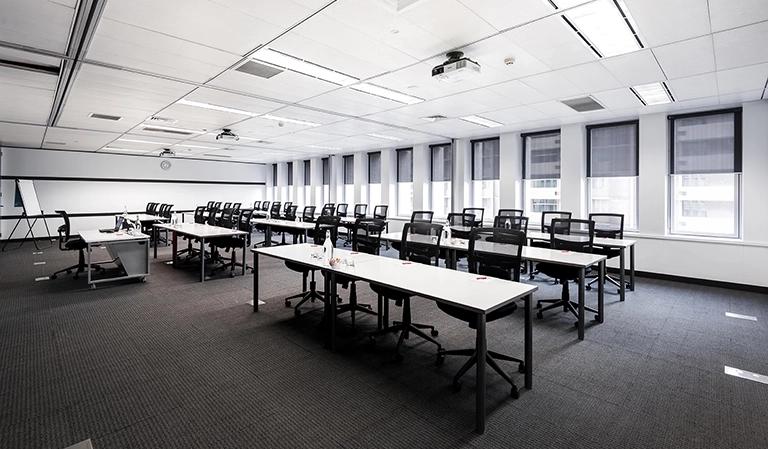Posted on July 17, 2024
Blog
Conferences
Event Management
What is a Seminar? Definition, Types, & Benefits
When you think of the word "seminar," you might imagine experts sharing knowledge, people networking, and deep discussions taking place. But what really is a seminar, and how does it differ from other educational or professional gatherings like workshops and webinars? Let us define seminars in meaning, the different forms it can take, and uncover the myriad of benefits they offer.
At Cliftons, we see seminars not just as events, but as transformative experiences that empower attendees and organisers alike.
What is a Seminar?
Seminar definition: A seminar is an intimate gathering designed to disseminate specialised knowledge about a particular subject or field. It transcends the traditional lecture format by incorporating discussions, question-and-answer sessions, and problem-solving activities. Seminars are typically more intimate than large-scale conferences, fostering a personal environment conducive to in-depth learning.


Seminar vs. Webinar
People often use the terms seminar and webinar interchangeably, but they are different. A seminar is usually held in person at a specific location. On the other hand, a webinar is a seminar conducted online and can be joined by people from anywhere, making it more accessible to a wider audience. Both seminars and webinars have similar goals and structures but are delivered in different ways.
Workshop vs. Seminar
Confusion also arises between workshops and seminars. The main difference is how they are conducted. Workshops are interactive and practical, involving exercises and hands-on activities. Seminars, however, are generally more focused on delivering information through lectures and discussions.

Types of Seminars
Seminars can be organised for various purposes and audiences. Here are some common types:
- Academic Seminars: These are often held in schools or universities where experts discuss specific academic topics, present research, or explore complex theories.
- Professional Seminars: Aimed at working professionals, these seminars are about enhancing skills, keeping up with industry trends, or fulfilling professional training requirements. They are common in fields like law, medicine, and business.
- Community Seminars: These are open to the public and cover wide-ranging topics such as personal finance, health, and community issues. They are usually sponsored by local organisations or businesses.

Benefits of Attending Seminars
Gaining Knowledge
The biggest benefit of attending a seminar is learning new information and skills directly from experts and thought leaders. This knowledge isn't usually found in conventional media, like books or online, making seminars an invaluable educational opportunity.
Networking
Seminars are great for meeting other people who are interested in the same topics as you, potentially sparking collaborations, projects, or career advancements.
Professional Growth
For professionals, seminars are a way to stay competitive and informed about the latest developments in their field. Many industries also count seminar participation towards continuing education credits.
Best Practices for Hosting a Seminar
Engaging Content
The success of a seminar heavily depends on its content being relevant and engaging. Organisers should choose topics that interest their audience and include interactive elements like live questions and discussions to keep everyone involved.
Expert Speakers
Choosing the right speakers is critical. They should not only know the subject well but also be able to keep an audience engaged. It's important to match the speaker's expertise and style with the seminar's goals and audience expectations.
Follow-Up Materials
After the seminar, providing materials like recordings of the sessions, extra reading materials, or summaries can help attendees remember what they learned and apply it.

Wrapping Up
Seminars are a powerful tool for learning and professional development. They blend education, networking, and growth opportunities in a unique way that benefits attendees. By understanding the goals of seminars and applying some of these best practices, you can open the doors to embracing these highly valuable events for your organisation’s goals.
Whether you're looking to organise or attend a seminar, this format can open doors to new knowledge and opportunities that help with both personal and professional growth.
FAQs
1. What are the key steps in planning a successful seminar?
To plan a successful seminar, start by defining clear objectives and identifying your target audience. Choose an appropriate topic that resonates with potential attendees. Secure qualified speakers and select a suitable venue or digital platform. Promote the event effectively to ensure adequate attendance, and plan the logistics meticulously to ensure a smooth execution on the day of the seminar.
2. How can we measure the success of our seminar?
Success can be measured through several metrics such as attendee feedback, the number of participants, engagement during the session (questions asked, interaction in activities), and post-event surveys. Additionally, track the application of learned skills in the workplace and any subsequent improvement in work performance or satisfaction.
3. What are the best practices for promoting a seminar?
Effective promotion strategies include using email marketing to reach out to your existing network, leveraging social media platforms for broader outreach, engaging with industry influencers to widen your audience, and utilising event platforms like Eventbrite or Meetup to attract attendees. Ensure your promotional materials clearly communicate the benefits of attending the seminar.
4. How do we choose the right speakers for our seminar?
Select speakers who are not only experts in their field but also have a strong track record of engaging and dynamic presentations. Consider their reputation and ability to attract attendees. It’s also beneficial to conduct interviews or view past presentations to ensure their communication style aligns with your seminar’s objectives.
5. What logistical aspects should be considered when hosting a seminar?
Key logistical considerations include choosing a venue that accommodates your expected attendee size and has the necessary technological support for presentations. If hosting online, select a reliable webinar platform that supports interactive features. Catering, registration processes, and on-site coordination are other critical factors.
6. How can technology enhance the seminar experience?
Technology can enhance seminars by enabling interactive presentations, real-time polls, and Q&A sessions that engage attendees more deeply. For online seminars, using platforms that allow breakout rooms and virtual networking can mimic in-person interactions, adding value to the experience.
7. What are some common challenges in organising seminars and how can they be mitigated?
Common challenges include low attendance, technical issues, and inadequate engagement. These can be mitigated by early and effective promotion, thorough testing of technology prior to the event, and engaging content that includes interactive elements to keep attendees interested and involved throughout the seminar.
About Cliftons
Event Solutions
If you’re ready to start bringing your event plans to life, talk to our
team to discuss your goals.
Start with a no-obligation chat about what you want to achieve, and our team can guide you through the services we offer.


